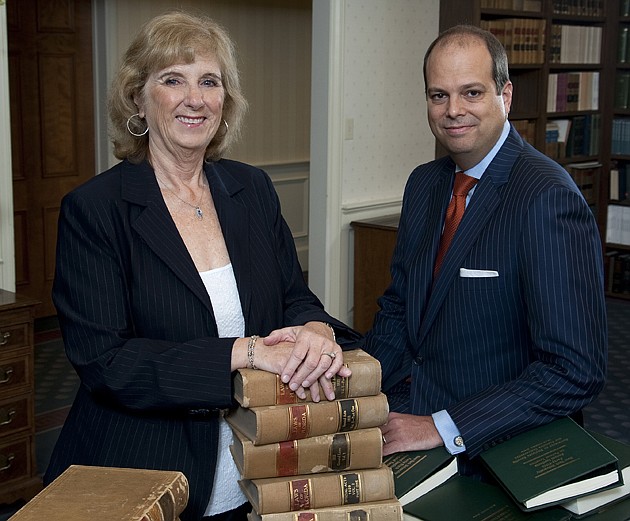- July 26, 2024
-
-
Loading

Loading

Attorneys at Williams Parker, one of the most established firms in Sarasota, have long wanted to go global.
The firm, Chief Operating Officer Brad Robbins says, sought to follow clients who required counsel on specific legal needs in a foreign land, from protecting patents to opening factories. But launching an office in a foreign country is a cost-prohibitive venture loaded with risks and challenges, especially for a medium-size firm in a small town.
So in 2011 Williams Parker did the next best thing: It joined the International Alliance of Law Firms. The Minneapolis-based organization, founded in 1990, is essentially a global legal referral service onto itself, with 63 business-focused firms in 43 countries, from Argentina to Venezuela. More than a dozen of those firms are based in the United States. Alliance members refer clients abroad to other members. All members pay an annual fee and attend a few members-only meetings a year.
Williams Parker, a firm with 44 attorneys founded in 1925, is the first and only Florida firm in the alliance. “This has been an something we always wanted to do,” says Robbins. “It's democratized the global opportunity. This is the new model for global law.”
The traditional model is to build a big firm in the U.S., usually to more than 1,000 attorneys, and go after work abroad in emerging markets such as China and Brazil. That approach, however, is a tough sell for law firms these days, considering how much the recession dented the law services industry. Plus, it's difficult to maintain quality of legal counsel spread across international boundaries.
That makes the International Alliance, and similar groups like it, all the more appealing to Robbins and his colleagues. The firm has used the group to help clients with interests everywhere from France to China. More specifically, Williams Parker, through the alliance, has helped one client expand a back-office support center in Mumbai; helped another client establish a joint-venture manufacturing operation in Mexico; and referred a third client to an attorney who could offer quick legal advice on an employment issue in Germany.
“The business world is getting more global, and people are doing work all over,” says Michael Wilson, a tax attorney with Williams Parker. “The alliance is our tool to help clients flourish in a hot, flat and crowded world.”
Williams Parker also says alliance membership recently helped it win a major new account, of a multinational company with a Florida headquarters.
Carol Myers, an attorney with the firm who specializes in benefits law, spearheaded that victory. The company approached her recently to bid on some benefits consulting. She prepared a bid, and added that Williams Parker, through the alliance, could help the company with its myriad issues in the 20 other countries in which it does business. The firm won the business, says Robbins, over some much larger competition.
“We were able to show them our broad capacity,” says Myers, previously an attorney at Holland & Knight, a global giant with more than 1,000 lawyers spread through 18 offices. “I didn't have any international contacts on my own.”
Williams Parker has further utilized the alliance to broaden its network of U.S.-based attorneys with which it works. It connected with a Michigan-based firm, for example, that has a staff attorney who is an expert in health and welfare benefits law — a niche even narrower than Myers' specialty. Myers has since created a working group with that firm. “We don't have competition among members,” says Robbins, “so we are much more willing to share information.”